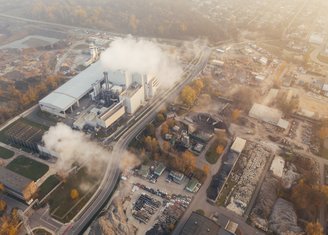
Divest Tyne & Wear is a campaign by local citizens to end investment in fossil fuels by local councils and organisations to fund pensions. We are requesting they:
Key facts and figures:
£340m (down from £461m in 2022)
How you can get involved:
use your power as a voter – info here to ensure your vote, lobby candidates, vote for the planet!
join our new ClimateReads Book Group
Join us to witness the Pension Fund make its decisions about fossil fuel investment:
The Pension Fund meets every three months – you are welcome to join campaign members there. We attend the public sessions to help the campaign by gathering information. We are also there as witnesses for the next generation who will bear the burden of climate change, which is being fuelled by continued use of fossil fuels.
Venue/Time: South Shields Town Hall, 9:30 start (we can help with travel info and where to meet)
Future dates:
Click here for a list of all the people on the Pension Fund committee: representatives of six local councils, employers and pension fund members.
HOW SIX LOCAL COUNCILS PASS ON OUR MONEY FOR FOSSIL FUEL INVESTMENT
Six local councils use our local council tax payments to contribute to Tyne & Wear Pension Fund. This undermines their own pledges and climate emergency declarations. We have held protests in all six areas and our supporters lobby their local councils for change – please email us if you would like a copy of a template protest letter or email. The councils are Newcastle, Gateshead, North Tyneside, Northumberland, South Tyneside and Sunderland. Find out how much of your money they have passed to Tyne & Wear Pension Fund here.
For an inspirational example of protest, here is the link to the Climate Choir’s protest at the City of London, during our UK Day of Action on Divestment Day.
“This fossil fuel investment surprises people when we reveal this information. They ask why they didn’t know. With your help, we can join forces to spread this awareness, and achieve change?”
Q: “What does ‘divestment’ mean?”
A: It’s the opposite of investment and means primarily getting rid of stocks, bonds or investment funds that are unethical and damaging the environment. The shift to alternative energy sources and electric vehicles means that it does not make financial sense to invest in something that is being phased out!
Q: “Which other organisations are divesting?”
A: Since 2012, more than 1,000 institutions have divested from fossil fuels, including New York City, Rockefeller Brother Fund, and Ireland.
Five local authority pension funds have committed to fully divest from fossil fuels:
Waltham Forest is expected to be fully divested by April 2022, within six years of committing to divest. They surveyed divestment opportunities in 2017 and 2018, with the first transfers of money in 2018 and 2019. They appointed three new managers tasked with identifying emerging markets where investments could be transferred to stocks with minimal carbon footprints. It can be done!
In addition, 36 councils have already passed motions in support of divestment by their pension fund.
Q: “Which local councils are in the scheme and how many members are in the T&W Pension Fund?”
A: Six local authorities in our area use council tax income to support their pension schemes. Together they are accountable for Tyne & Wear Pension Fund decisions – they are South Tyneside, Sunderland, Gateshead, North Tyneside, Newcastle and Northumberland councils. All six councils have declared a climate emergency and each has made public commitments on their websites. As of March 2023, the overall membership was just under 190,000, many of them are unwittingly contributing to climate breakdown because of the way their contributions are invested by Tyne & Wear Pension Fund without keeping members informed.
South Tyneside Council:
"South Tyneside Council declared a climate change emergency on 18 July 2019. We are implementing strategies that will bring about real change. We aim to:
Newcastle City Council:
“On 3 April 2019, Newcastle City Council declared a Climate Emergency. The Climate Emergency declaration made the commitment to create a new Climate Change Strategy with the aim of achieving Net Zero status by 2030.”
Northumberland County Council:
“We are committed to tackling climate change and have vowed to half our carbon footprint by 2025 and make Northumberland a carbon neutral county by 2030. But we can't do it alone. We need everyone in Northumberland to play their part and do their bit.”
North Tyneside Council:
“In July 2019 North Tyneside Council declared a Climate Emergency. The Our North Tyneside Council Plan 2021-25 has the stated ambition that; [w]e will publish an action plan of the steps we will take and the national investment we will seek to make North Tyneside carbon net-zero by 2030.”
Gateshead Council:
"We are committed to being carbon neutral by 2030. In response to the climate change emergency declared in 2019, we are committed to:
Sunderland City Council:
Sunderland declared a climate emergency in 2019.
"Our Climate Emergency Declaration is our city's statement of environment improvement intent, and we hope people will help us to achieve its long term aims."
The commitments outlined in the Declaration were announced at full council in March, and support the Council's ambition to have a net zero carbon footprint by 2030 and achieve its long-term aim of creating a greener and cleaner living environment for all its residents 20 years ahead of the UK National target."
Q: “Which other local businesses and organisations use the pension scheme and pass funds to it?”
A: More than three hundred other local organisations also use the scheme, including
A full list is available here
Q: “How much is invested in fossil fuels?”
A: Tyne & Wear is part of the Border to Coast pension pool, one of the largest pension pools in the UK, bringing together over £45 billion investments of eleven local government pension funds. The Border to Coast pool includes Cumbria, Durham, Teesside, North and South Yorkshire, Bedfordshire, East Riding, Lincolnshire, Surrey, and Warwickshire.
Q: “What are the activities carried out by the Divest Tyne & Wear campaign?”
A: Members of our Divest Tyne & Wear campaign:
The divestment team is also currently busy campaigning by engaging decision makers and garnering public support. Keep in touch with the latest by visiting our Facebook page and signing up for our newsletter
Q: “How can I start campaigning for divestment by other pension schemes?”
A: If you are a member of another local authority pension scheme you can find your local campaign group here
If you are a member of another pension scheme and want to contact them to divest from fossil fuels you can get more information about how to do this here
Q: “As well as pensions, are there other ways we can harness greener finance to help progress towards sustainable safer lives and avoid funding fossil fuels?”
A: Yes, there are an increasing range of ways we can do or best to switch to greener pensions, banks, insurance and other finance. Our campaign has organised talks on this – let us know if you would like one for your organisation. For our event in May 2024, at Newcastle Arts centre, we produced this Advice and Info sheet – you can access it here.

Divest T&W video:
Your Council Tax funds climate change
Divest T&W video:
Your Tyne & Wear pension fund is underperforming
Divest T&W video:
Your local council is not being fair with climate change commitments
The earth has warmed and cooled for hundreds and thousands of years but today, scientific research tells us that it’s warming at a rate that’s never been seen before. Fossil fuels like coal, oil and gas that we’ve been using for hundreds of years produce a gas called carbon dioxide. This gas traps the heat from the sun leading to the Greenhouse Effect.
The Greenhouse Effect means that instead of sun rays coming down to the earth and leaving later through our atmosphere they instead get trapped, meaning that the earth keeps getting warmer.
So our use of fuels like oil and coal has changed the natural way the earth warms and cools. This means that we need to change the way that we use fossil fuels in order to limit the warming of the planet. We’ve already seen the earth warm by more than one degree over the past few hundred years, and while that may sound like a good thing in some parts of the world, it’s actually pretty dangerous. Warming can lead to all kinds of natural disasters including storms, floods, heatwaves, and droughts.

In fact, even the warming we’re already seeing today has led to seas rising across the world.
That’s why scientists say that we have to keep climate change to well below 2 degrees of warming by the end of this century, in order to have a chance of responding to the consequences of climate change.
If we can cut the amount of fossil fuels that we use and do it quickly, we may just be able to limit or even stop the damage caused by climate change. And one way to do this is through our pension funds.
It’s our money that buys corporate bonds and shares in companies producing fossil fuels like coal and oil even when alternatives like renewable energy are available.
And, even if we start turning off the lights when we’re not at home, or clean energy replaces fossil fuels at an even faster rate, our pension funds may continue to support these companies.

“Climate change is a tragedy on the horizon for the planet
that could leave pension funds and other businesses with worthless assets if they fail to adapt."
Mike Carney
former Governor, Bank of England
“Fossil fuel companies are driving the climate crisis and have successfully delayed action on climate change for decades. It’s time for our institutions to take a stand and cut their financial ties with fossil fuel companies.”
Fossil Free Europe
“The logic of divestment couldn't be simpler: if it's wrong to wreck the climate, it's wrong to profit from that wreckage."
Bill McKibben
Environmentailist and Writer
“Climate change is one of the single biggest challenges facing development, and we need to assume the moral responsibility to take action on behalf of future generations, especially the poorest.”
Jim Yong Kim
World Bank President, 2012

The UK Government said in December 2016 that “70-75 percent of known fossil fuels would have to be left unused in order to have a 50% chance of limiting global temperature rise to below 2°C”.
The Governor of the Bank of England has said that the action needed to keep to a 2 degree goal “would render the vast majority of existing reserves “stranded” – oil, gas and coal that will be literally unburnable”. Yet, fossil fuel companies are actively drilling for NEW reserves of coal, oil and gas over and above existing reserves; their actions are completely compatible with staying within 2 degrees.
Pensions are for our future security. Climate change is one of the biggest threats to that security. On ethical grounds, pension funds should not invest in companies that are making climate change worse.

Pension fund boards have a “fiduciary duty” – to act in the best interests of the funds beneficiaries. This section sets out how “best interests” means pension funds now need to assess and act on climate risks.
Increasingly, Governments are taking stronger action on climate change. There are bumps in the road, but the direction of travel is one-way: action will increase. More and more fossil fuel “assets” will become stranded as Governments legislate on climate change and raise the price of carbon. The Paris Agreement in December 2015 is the clearest signal yet.
The Governor of the Bank of England is just the latest in a long line of financial heavyweights noting the increasing risk that fossil fuel companies are overvalued, in a world where greater action on climate is inevitable. As yet these risks have not yet been properly assessed or priced by financial regulators or the fossil fuel companies.

South Tyneside Council has already accepted that climate change poses a significant hazard to our community. In 2019, the climate emergency motion was passed at full council. In short, this commits the council to become carbon neutral by 2030, and using the Council's advocacy role to influence actions that promote carbon reductions, across all our communities and the region.
Climate change will affect us all in South Tyneside. Our borough is hugged by the North Sea and the River Tyne, this means flooding is a real risk. Climate change will drive more severe storms and the coastal erosion we are seeing in Marsden will continue to get worse.
Continuing to pump millions of pounds of our money into the fossil fuel industry is not just irresponsible, but is incompatible with the council's own goals and values.
Copyright © CAST 2024